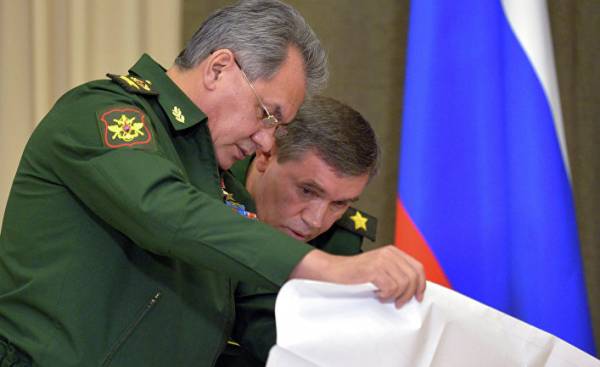
To the extent that, as in recent years, tensions increased between Russia and the West, Moscow is increasingly using methods of hybrid warfare — one that it is waging against Ukraine — to gain and hold position in their struggle for power and influence. This is referred to in an editorial in the American private intelligence analysis company Stratfor, the text of which is available to “Apostrophe”.
War is not as it was before. As noted in Stratfor, nowhere seen so well as in the ongoing struggle between Russia and the West for influence. Now it is equally is in the shadows and in plain sight. With the advent of digital technologies, the conflicts between the great powers has spread to cyberspace, and the Kremlin took to hone their capabilities in a hybrid war.
The term “hybrid war” is now in Vogue. But in practice it has existed for centuries. The Napoleonic wars, the revolutions in North and South America and the cold war — they all showed it, combining conventional and unconventional tactics. But the evolution of technology and media has opened a new concept of hybrid war, adding elements such as trolls, bots and hacktivists (hacker-activists). Although there is debate regarding the definition of the term, hybrid war can now enable the deployment of any number of instruments in cybersphere, in addition to conventional forces, paramilitary, punitive economic measures, political manipulation and the dissemination of propaganda and disinformation. And since the costs of conventional conflicts has increased, it has increased the importance of hybrid war as a tool in international relations.
The hallooing of the West against itself
Russia, says Stratfor, is at the forefront of these processes. After restoring as a regional power in the mid-2000s, Russia widely used hybrid warfare as a Central component of national security strategy, especially in its relations with the West. Since Russia can’t boast of a superior conventional force required to make one glance to confuse NATO and to regain the territories lost in the process of disintegration of the Soviet bloc, she had to turn to other means to maximize its benefits and minimize its drawbacks.
In full this strategy was demonstrated in Ukraine, where Russia relies on several hybrid tactics in war-torn East of the country. There the Kremlin has sent “little green men” — the forces, which Russian forces, although Moscow argues that this division “local self-defense.” In addition, the Kremlin is organizing cyber attacks and propaganda campaigns against the government in Kiev. However, Moscow did not stop and start similar operations against the Western allies of Ukraine (including intervention in the U.S. presidential election) and Pro-Western countries.
Force — relative
And although the manner and intensity with which Russia uses a hybrid war, have changed over the years, her motives remain the same. Due to its geographical location the country has long been vulnerable on the Western flank. From the major European powers Russia is separated it is a vast Northern European plain — other physical barriers between them is small. As a result, the border strip, caught in the middle, has traditionally been a place of constant competition and conflict.
At the end of 2000-ies Russia has begun to restore part of its former position, partly thanks to the consolidation of power by Russian President Vladimir Putin, the recovery of the economy due to high oil prices and the diversion of US in the middle East. This allowed her to postpone what she saw as Western intrusion on its periphery. But Russia’s success was short-lived, and between the Ukrainian Euromaidan and the Western sanctions and build military capacity of the Russian Federation tried to protect their interests. Since then, analysts add the American company, the tensions between it and the West has increased, and in search of the domination of Moscow passed to hybrid war.
So, according to Stratfor, Russia intends to use this tactic as a means of strengthening their own forces towards the West. Moscow hopes to bring down his opponent, creating instability within Western governments, reinforcing the split between European States, weakening transatlantic solidarity and hindering the integration of countries with the West.
All these efforts are aimed at achieving three major strategic objectives of Russia. First, to maintain their power in Moscow and St. Petersburg. Secondly, to block foreign influence on Russia’s periphery before to solve the third task: to increase access of the Kremlin to the key geographical pillars, like huge mountain ranges or access to the open sea. But since some of them are between Russia and Europe, no end in sight to the constant confrontation between Moscow and the West on the continent. And because Russia no longer can be the source of this global power that it possessed in the Soviet era, that hybrid warfare will be for her an increasingly important means to compensate for their weaknesses and to undermine the power of your enemies.







